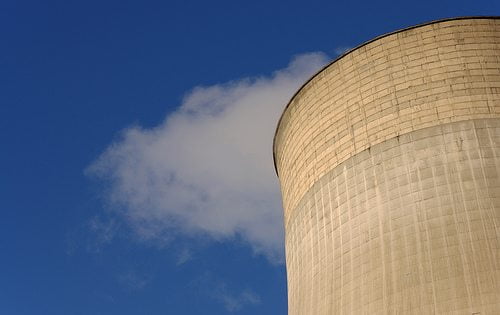

Economy
EU agrees to start carbon market stability reserve in 2021
EU member states are set to begin negotiations on the EU Emissions Trading Scheme (ETS) next week after an agreement was reached on Wednesday. They have agreed to seek cutting supply in the carbon market in 2021, despite calls for earlier action.
The EU-ETS covers more than 11,000 factories, power station and other installations. It operates on a cap-and-trade system, where the total amount of greenhouse gas emissions that can be emitted by the businesses involved is set and allowance can then be traded.
A Market Stability Reserve would see the amount of emission allowance units that the EU is permitted to auction reduced. The new deal allows EU governments to being negotiations on the final version of the draft law.
In a statement, the Latvian Presidency said, “The decision is an important step to fight against climate change and paves the way for the reform of the EU greenhouse gas emissions trading scheme. Man-made greenhouse gases are largely responsible for warming the planet and causing climate change.”
The statement explains that a Market Stability Reserve is needed to correct the current market imbalance after a surplus of emission allowances has accumulated in the system, reaching approximately 2.1 billion in 2013, and as a result weakening the carbon price. The surplus has been linked to the economic crisis
Earlier this year business leaders called for the ETS to be reformed to include a Market Stability Reserve by 2017. They argued such a move is necessary to ensure the low-carbon economy and energy system remains on track.
Photo: Matt Buck via Flickr
Further reading:
Business leaders call for stability reserve in EU Emissions Trading Scheme
Investors call for Emissions Trading Scheme fix
UK calls for changes to EU emissions system to boost low carbon investment
Industry mulls over future of carbon price floor
EU carbon price set to average at €23/t between 2021 and 2030


 Features11 months ago
Features11 months agoEco-Friendly Cryptocurrencies: Sustainable Investment Choices

 Energy11 months ago
Energy11 months agoThe Growing Role of Solar Panels in Ireland’s Energy Future

 Energy10 months ago
Energy10 months agoGrowth of Solar Power in Dublin: A Sustainable Revolution

 Energy10 months ago
Energy10 months agoRenewable Energy Adoption Can Combat Climate Change

















